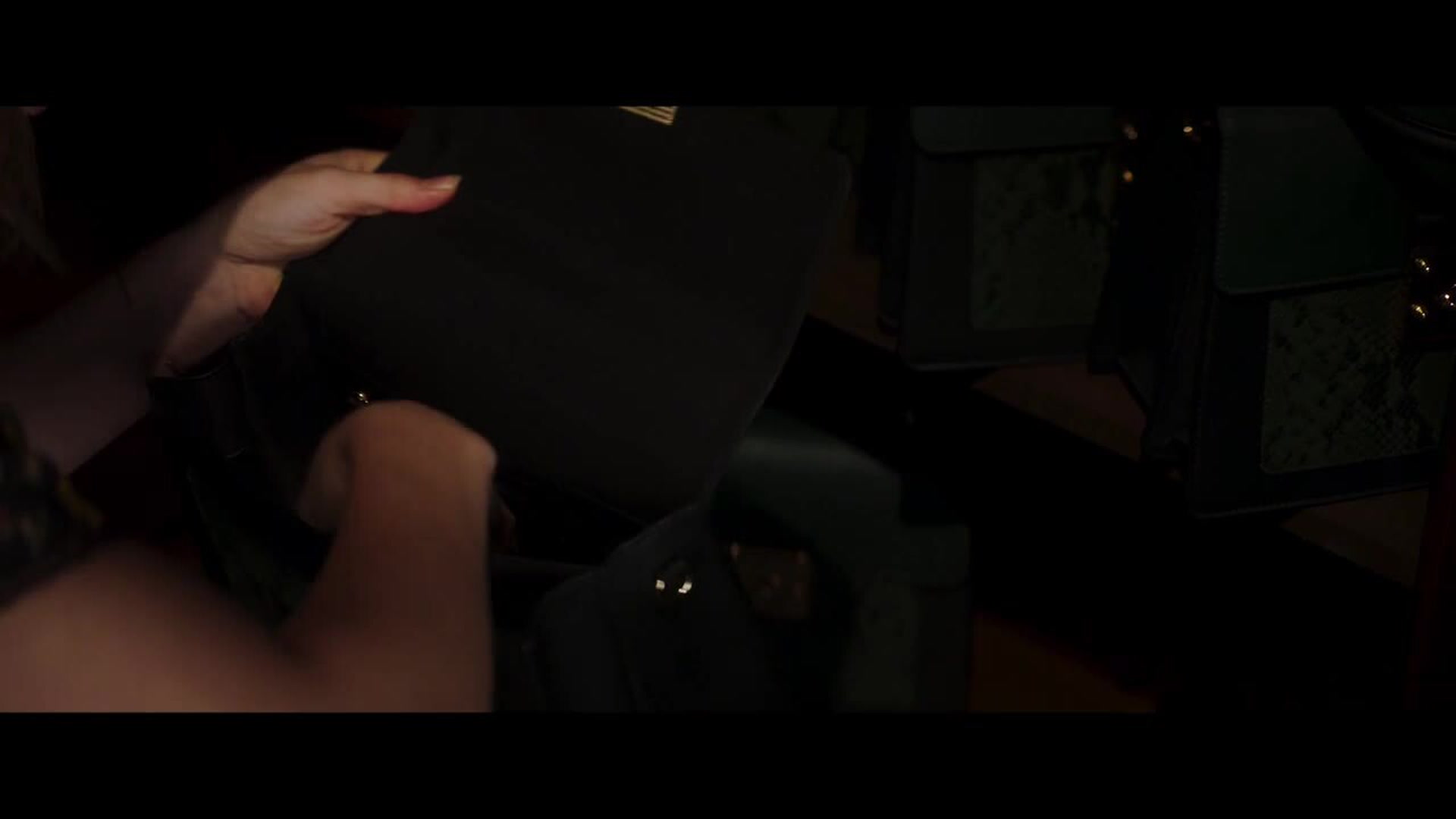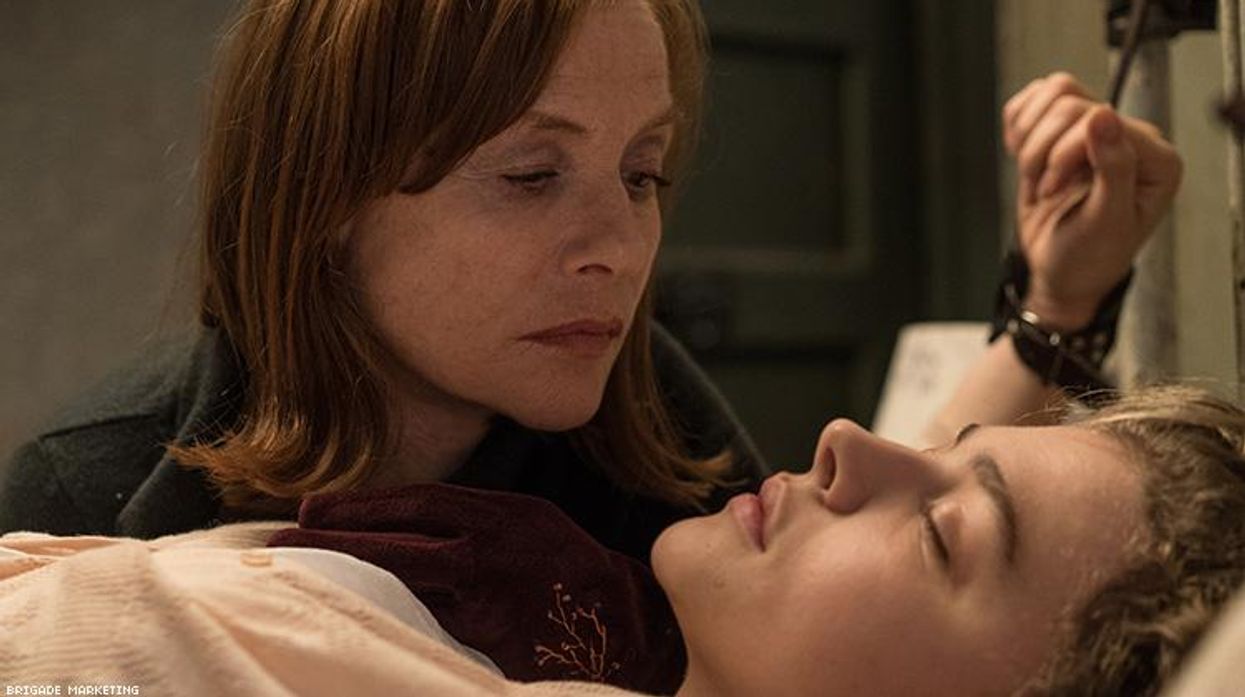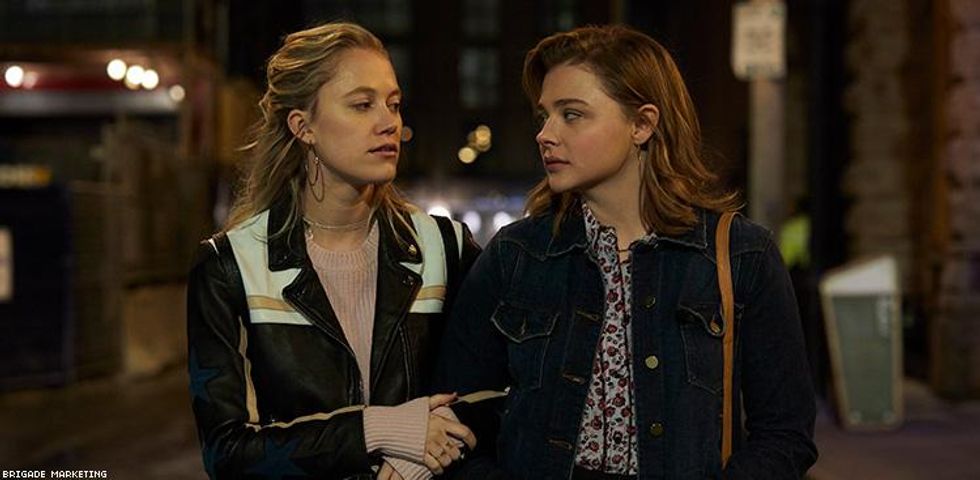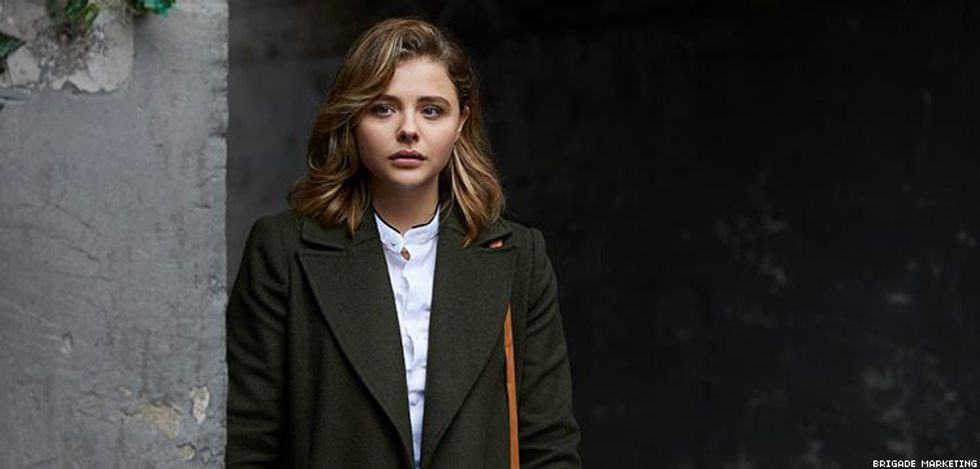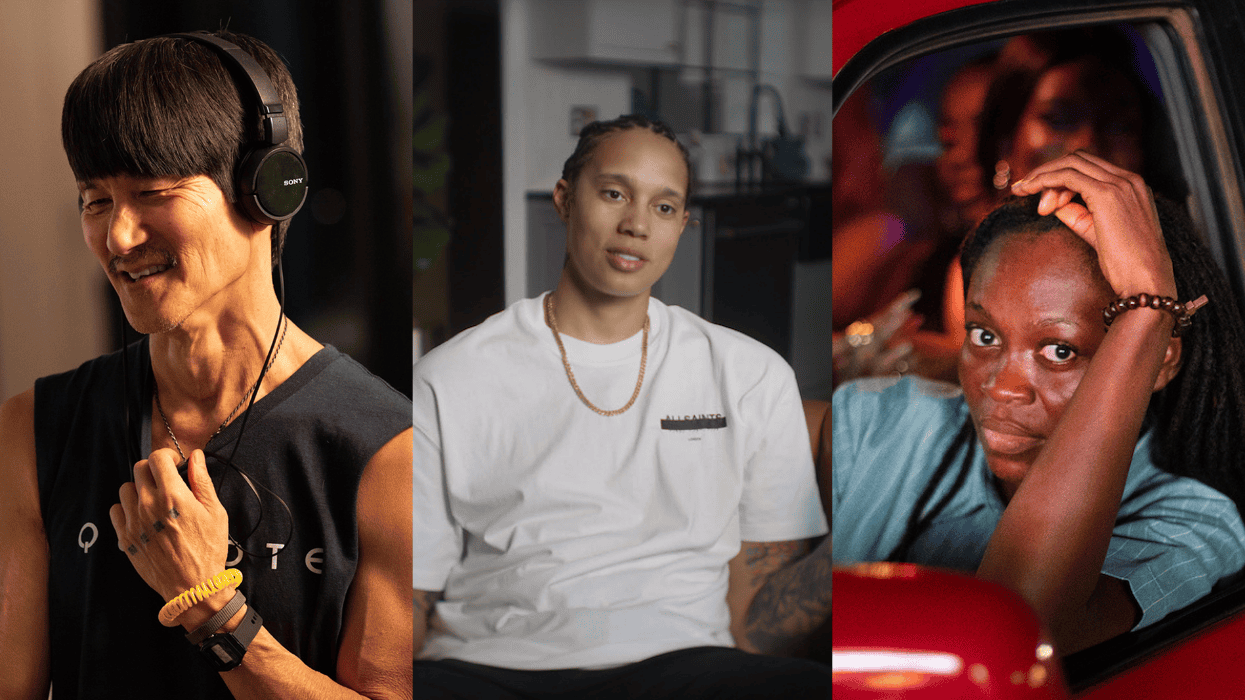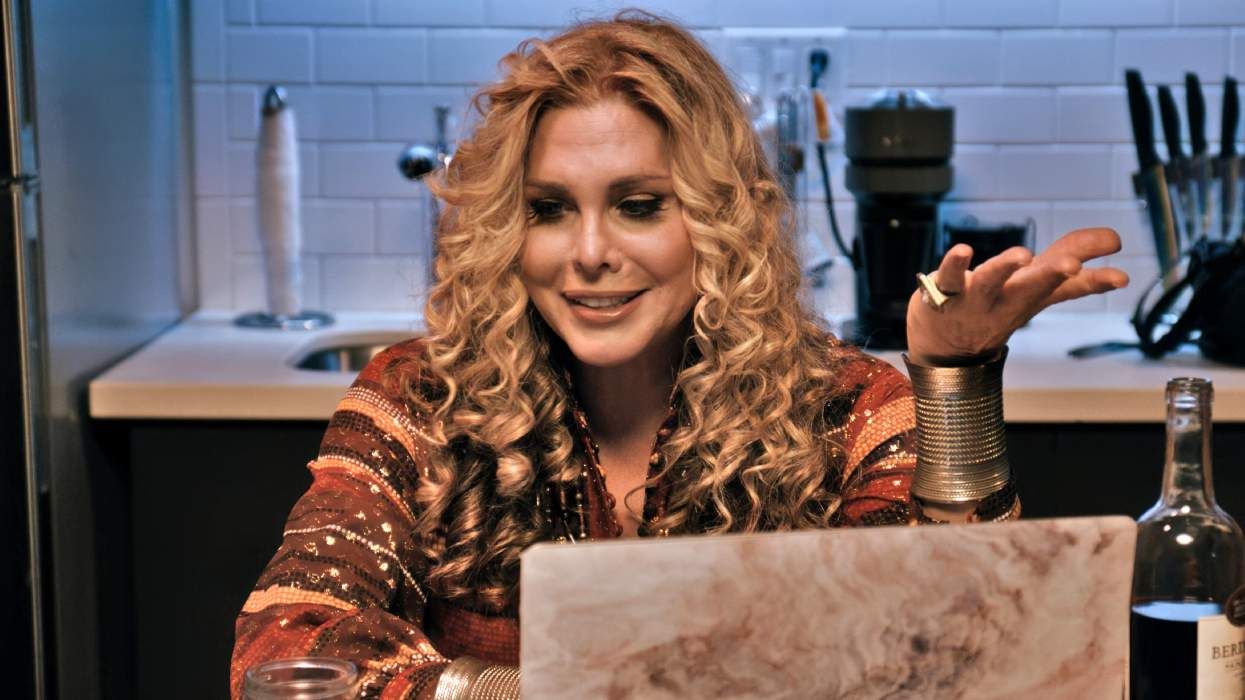Corrosive boundaries between women and the idea of the monstrous mother are explored in Neil Jordan's new film Greta, where a delightfully unhinged Isabelle Huppert terrorizes hapless girls in New York City, luring them with green handbags.
When Chloe Grace Moretz's country mouse of a character, Frances, discovers a beautiful purse on the subway, she doesn't do the sensible thing and alert the MTA in case of a bomb. She takes great pains to find the owner, a seemingly kind older woman, and returns it. What ensues is a stalker movie with the campy glee of Basic Instinct laced with imagery from Alfred Hitchcock. The movie explores obsession that presents in everything from an extreme form of mothering to the borderline psychosexual.
The metaphor of the handbag for women, as a vagina and a vessel, was one of Hitchcock's enduring fetishistic flourishes that hit its nadir in 1964's Marnie, about a neurotic young woman whose monstrous mother tormented her. It makes sense that in Jordan's film Greta, about female neuroses gone deeply awry, he opens with a shot right out of Marnie of a young woman (Frances), shot from behind, as she exits a subway, the folds of a purse nestled under her arm as she strolls down the platform.
Jordan (The Crying Game, Interview With the Vampire) not only pays homage to Hitchcock in Greta's opening shot, but he signals that the story about to unfold will excavate the crevices of the female psyche. Here, the director freshens the old thriller trope by primarily eliminating men and creating a world of women in which the occasional male character is ancillary and mostly inessential to driving the plot.
"This film, outside of even the mother theme -- it was the Single White Female, the Fatal Attraction, the Basic Instinct of it," Moretz tells The Advocate about what attracted her to playing sweet, gullible Frances. "Then, flipping it on its head and subverting the genre tropes by casting Isabelle Huppert instead of [say] Anthony Hopkins. Maika Monroe [who plays Frances's best friend and roommate Erica] instead of a boyfriend character --having it be three women at the helm of their own story, which usually this would be very [traditionally] gender biased."
Moretz, who was in her early teens when she played opposite Julianne Moore's monstrous mother in Kimberly Peirce's Carrie remake and who recently starred in Luca Gaudagnino's Suspiria reboot with Tilda Swinton, knows a thing or two about the horror genre.
The 22-year-old actress is right about the film deriving its tone not only from Hitchcock but also from the obsessive women movies of the late '80s and '90s. There's no ice pick or bunny boiling in Greta (however, Greta makes hilarious, macabre use of a syringe on more than one occasion).
But the movie offers the legendary French actress Huppert--known for plumbing the recesses of women's obsession and desires in films including Elle, Ma Mere, The Piano Teacher, and the queer-leaning La Ceremonie -- the opportunity to go full tilt. She transforms from a kindly, refined, vaguely Hungarian transplant to NYC to a full-on stalker and murderess who flips a table at a fine restaurant, spits gum in Moretz's hair, and performs triage on herself.
"I could expect that [Jordan] was going to bring a lot of unexpected things to the movie -- irony, humor, something which makes the movie special and which was also going to allow me to give a lot of freedom to the character and really create her the way I wanted with no limitations, no obligations," Huppert tells The Advocate about taking on the role. "What was appealing about her is that she's so invisible at the beginning, so you can't really say anything about her. Of course, she turns out to be this kind of monster."
Maika Monroe and Chloe Grace Moretz
Feeding into a trope is a slippery slope that can lead to dangerous stereotyping. But in the case of Greta in which female neuroses goes extremely haywire, Huppert says there's a freedom in having chosen the role that she considers feminist.
"It's nothing to do with playing a victim or not being a victim. But just being as free as possible as an actress and also being the center of the story... That's my feminista in a way," Huppert says of Greta's eschewing of men at its center. "The story evolves just around the female character and not being seen as the dependent element to a male story."
Both Huppert and Moretz acknowledge the fairy tale aspect of the film as well. A clear descendent of Hansel and Gretl with the witch luring kids to her home with crumbs before shoving them into an oven, Huppert's Greta drops handbags around the city until an unsuspecting, typically young woman (adding a dash of psychosexual obsession) finds it and merrily jaunts to the address handily left in the bag in order to return it. When Frances arrives at Greta's home -- which Jordan shoots with low and canted angles that give off an unsettling fairy tale sensation -- Greta thanks her by inviting the young woman in for coffee and sweets.
There, in Greta's claustrophobic apartment, even as indefinable noises that will later be explained emit from behind a wall that Greta sloughs off as just her neighbors moving furniture, the women form a fast friendship.
Through their isolation in the city and through their shared loss --Frances's mother has recently died and Greta's husband and dog have died while her daughter has left her for school--they discover they're tailor-made codependents, much to best friend Erica's chagrin as she tries to warn Frances not to get too close to the weird old lady.
"I like this idea of this simplicity in showing your character, but at the end of the day, making something really deep and profound about what it means to have the kind of evil growing within yourself," Huppert says about Greta as a dark fairy tale.
"It's kind of Snow White biting the apple in a lot of ways," Moretz adds. "There are so many things in there that are layered in with the Grimm's fairytale version --not the Disney version."
It's not long before there's an unspoken quid pro quo between the women. Frances helps Greta adopt a new dog and teaches her a thing or two about technology and social media (that will come back to haunt her). Meanwhile, Greta slips into a maternal role, doling out advice and cooking meals for her prey.
While the film leans heavily into the mommy issues trope, it also investigates themes of isolation and alienation in an era of online over-connection while pushing the limits of how and when obsession turns monstrous.
"The underlying theme of [Greta] is loneliness and heartbreak and loss. And what does that do to one's psyche?" Moretz says. "How much of a monster is learned and how much of a monster is born?
Also, "How much of Frances is in Greta and how much of Greta is in Frances? If Frances had a bit more loss and a bit more heartbreak and a bit more loneliness in her life could she become Greta? How much of us have that within us?" Moretz says, adding that Greta's psychosis is not so far from the modern problem of obsessively searching for approbation on social media if its left unchecked.
Horror films are renowned for eroding boundaries of identity, and Greta, with its shifting themes, hints at a psychosexual bond beyond the mother narrative.
Huppert, who cemented her status as a queer icon decades ago with the lesbian-themed 1983 film Entre Nous, and with the 1995 Claude Chabrol thriller La Ceremonie, confirmed that Greta's obsession with luring young women (in particular) to her apartment is woven into the narrative.
"In Greta, you can also have this [queer] reading on the movie. It's not really expressed, but why is this woman certainly attracted to all these young girls? Huppert says. "It's a lot, it's several themes all entangled together. Motherhood, attraction to younger [women]. The mystery remains at the end."
Having amassed her own following playing gay in last summer's conversion therapy drama The Miseducation of Cameron Post, Moretz concurs that a queer reading of the film is as valid as any.
"We wanted to layer in the fact that we never wanted to put a finger on what their relationship was. And we wanted to keep the relationship really open-ended. Is it a motherhood theme? Is it sexual prowess? Is it a friendship?" Moretz says.
"They are star-crossed in so many ways. We wanted it to be as palpable as possible. And we wanted those lingering looks to carry whatever weight you wanted it to carry as an audience member," she adds.
